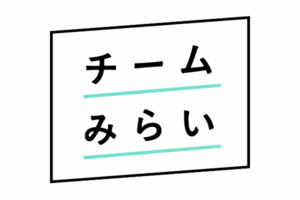Agile Development in Politics? A Bold Challenge for the Future in Team Mirai’s Early Manifesto
I am Tak@, a system integrator who enjoys developing web services using generative AI.
In this column, I will examine the newly released early draft of the manifesto of the new political party "Team Mirai" and its unique policy-making approach from my perspective as an engineer.
The Shock of Releasing Work in Progress
I learned that the new party "Team Mirai" has released version 0.1 of its manifesto, known as the "early draft."
Typically, a political party's manifesto is fully developed and finalized before being announced.
However, they have chosen to release an unfinished version, which still contains many work-in-progress sections, fully aware of the potential criticism. This is a highly unusual approach in the political world.
Why release it at such an early stage?
Their intention is to actively incorporate feedback and criticism from the public to refine their policies.
By releasing it before finalizing everything, they can remain flexible in adjusting their direction and integrate diverse perspectives early on.
They acknowledge the risk of being criticized for having an "unfinished" manifesto but have decided to embrace this challenge.
They believe this is the best way to create effective policies.
An "Agile" Approach Similar to Software Development
When I heard about Team Mirai's approach of releasing an unfinished manifesto and improving it based on feedback, I immediately thought of "Agile Development" in software engineering.
Agile software development prioritizes adaptability, collaboration, and working software over rigid planning.
It involves short iterations (called sprints) where planning, development, and deployment occur rapidly, allowing users to provide feedback that informs the next cycle.
This differs from the traditional waterfall model, where all requirements are finalized before development begins.
Team Mirai's manifesto release strongly resembles this agile approach.
- Releasing an unfinished version: Similar to early prototypes in software development, this allows real-world validation and iterative improvements.
- Welcoming criticism and feedback: This aligns with Agile's emphasis on user feedback and adaptive value delivery.
- Continuous updates and flexibility: Agile values responsiveness to change, which is crucial in unpredictable political landscapes.
- Collaborative policy-making: This mirrors Agile's focus on interactions over processes, fostering open dialogue.
Government system development often struggles with agile methodologies due to high uncertainty, but Team Mirai's attempt to apply this approach to politics is fascinating and commendable.
As someone who develops web services as a hobby, I have experienced the value of user feedback firsthand.
When I quickly implemented user suggestions in my tools, their satisfaction became a major source of motivation. This feedback loop is why I strongly resonate with Team Mirai's approach.
Can AI Become a "Policy Partner"? Exploring the Potential of the "Idobata System"
One of the most notable aspects of Team Mirai’s policy-making approach is the AI-powered Idobata System, designed to effectively gather and process public opinions.
This system allows users to chat with AI alongside the manifesto screen, asking questions, engaging in discussions, and even drafting policy modification proposals.
These proposals are automatically forwarded to Team Mirai’s policy advisors.
The Idobata System showcases the potential of generative AI in addressing societal challenges and enhancing public discourse. More than just an opinion aggregator, it enables:
- Individual engagement—citizens can interact with AI to deepen their understanding of the manifesto.
- Deeper reflection—users can challenge AI with questions and refine their perspectives.
- Structured proposals—AI helps format suggestions into constructive policy recommendations.
- Efficient processing—AI organizes proposals and ensures policymakers receive them.
Unlike simple majority voting, this system prioritizes nuanced discussions and clear responsibility in decision-making.
Team Mirai emphasizes that while public input is welcomed, final policy decisions rest with responsible individuals to ensure accountability.
By combining human creativity and AI-driven analysis, the Idobata System represents a collaborative model for AI-assisted policymaking.
Investing in the Future—Building a Resilient Society
At the core of Team Mirai’s manifesto lies the commitment to “leveraging technology to ensure no one is left behind in Japan.”
They argue that discussions in Japan tend to focus too much on redistribution rather than growth strategies.
With rapid global advancements, failing to innovate could leave Japan behind. However, they believe technology offers solutions to overcome these challenges.
The manifesto outlines three key steps toward sustainable growth:
- Embracing digital transformation: Implementing AI-powered tax algorithms, online medical consultations, and automation for administrative processes.
- Creating adaptable systems: Ensuring flexibility in governance to respond to unforeseen challenges with technology-driven solutions.
- Investing boldly in long-term growth: Funding education, scientific research, emerging industries, and cultural development to secure Japan’s future.
Technology is central to achieving these goals, fostering resilience in a rapidly changing world.
Conclusion: A New Wave of Political Innovation
Team Mirai’s journey is just beginning.
Without an established political foundation, their challenge is significant.
Yet, their commitment to transparency, agility, and AI-driven civic participation has the potential to reshape political engagement in Japan.
What do you think about this new approach to politics?
How can technology redefine governance and citizen participation?
As an engineer and citizen, I will be closely following Team Mirai’s evolution.



